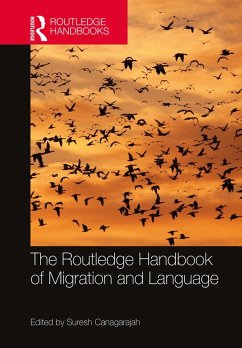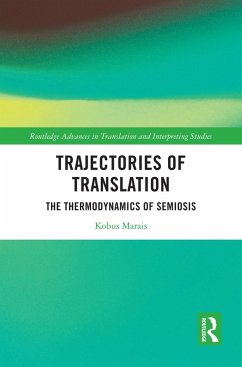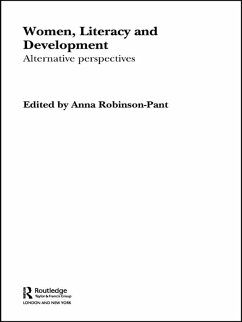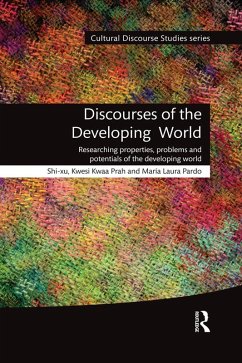
Translation as Social Justice (eBook, PDF)
Translation Policies and Practices in Non-Governmental Organisations
Versandkostenfrei!
Sofort per Download lieferbar
38,95 €
inkl. MwSt.
Weitere Ausgaben:

PAYBACK Punkte
19 °P sammeln!
This book analyses the translation policies and practices of international non-governmental organisations (INGOs), engaging in critical questions around the ways in which translation can redress power dynamics between INGOs and the people they work with, and the role of activist researchers in contributing to these debates.The volume examines the duality of translation and interpreting in INGOs, traditionally undervalued and under-resourced while simultaneously acknowledged as a powerful tool in ensuring these organisations work according to their own values of equal access to information, dia...
This book analyses the translation policies and practices of international non-governmental organisations (INGOs), engaging in critical questions around the ways in which translation can redress power dynamics between INGOs and the people they work with, and the role of activist researchers in contributing to these debates.
The volume examines the duality of translation and interpreting in INGOs, traditionally undervalued and under-resourced while simultaneously acknowledged as a powerful tool in ensuring these organisations work according to their own values of equal access to information, dialogue, and political representation. Drawing on over ten years of ethnographic fieldwork and interview data with a wide variety of INGOs, Tesseur offers unique insights into if and how INGOs plan for translation and interpreting needs while also critically reflecting on her own experience and the ways in which activist researchers like her can ensure social justice efforts are fully reflected in their own working practices. Encouraging a new interdisciplinary research agenda, the volume seeks to raise the profile of language and translation in humanitarian and development contexts and cross-disciplinary dialogue in scholarship on these issues.
The book will be of interest to scholars in translation and interpreting studies, sociolinguistics, development studies, and international relations.
The volume examines the duality of translation and interpreting in INGOs, traditionally undervalued and under-resourced while simultaneously acknowledged as a powerful tool in ensuring these organisations work according to their own values of equal access to information, dialogue, and political representation. Drawing on over ten years of ethnographic fieldwork and interview data with a wide variety of INGOs, Tesseur offers unique insights into if and how INGOs plan for translation and interpreting needs while also critically reflecting on her own experience and the ways in which activist researchers like her can ensure social justice efforts are fully reflected in their own working practices. Encouraging a new interdisciplinary research agenda, the volume seeks to raise the profile of language and translation in humanitarian and development contexts and cross-disciplinary dialogue in scholarship on these issues.
The book will be of interest to scholars in translation and interpreting studies, sociolinguistics, development studies, and international relations.
Dieser Download kann aus rechtlichen Gründen nur mit Rechnungsadresse in A, B, BG, CY, CZ, D, DK, EW, E, FIN, F, GR, HR, H, IRL, I, LT, L, LR, M, NL, PL, P, R, S, SLO, SK ausgeliefert werden.













